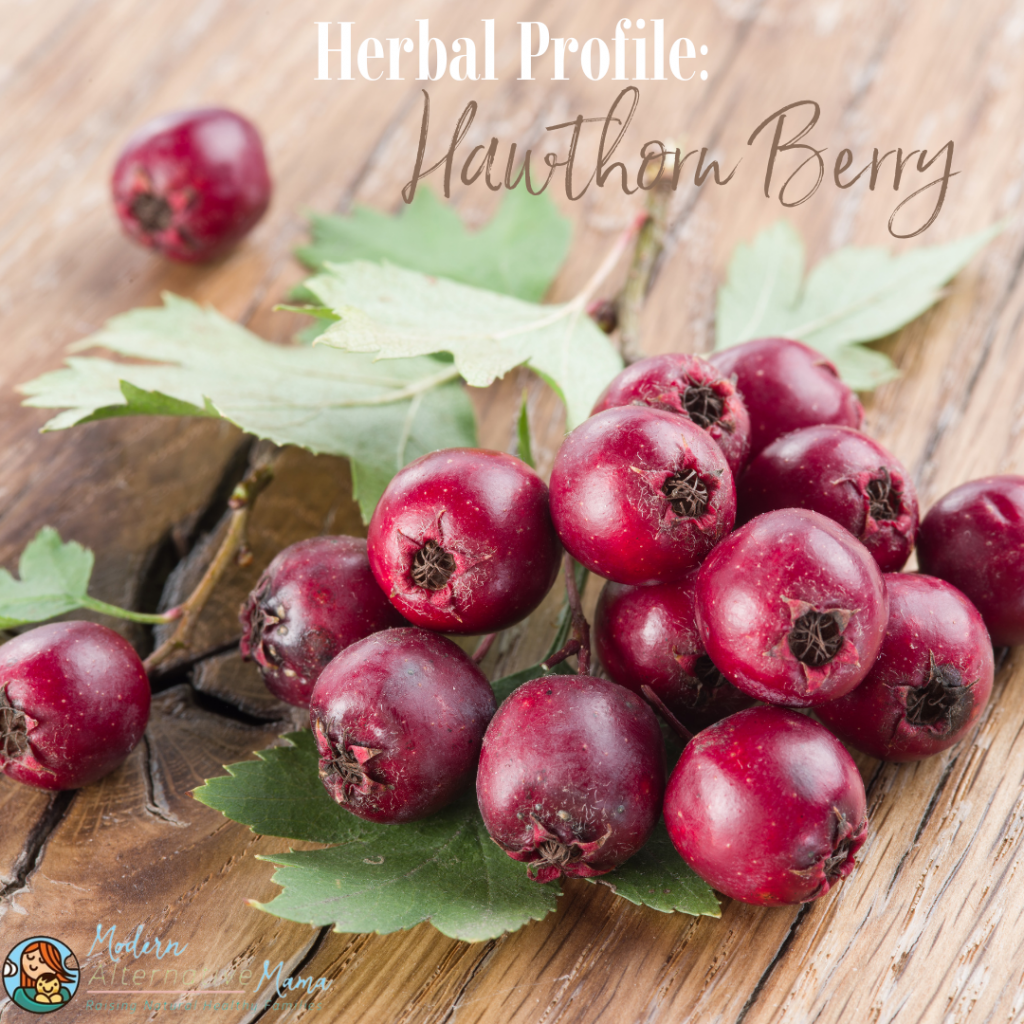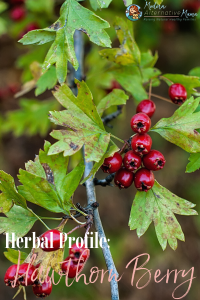What is Hawthorn Berry
Hawthorn berry is sometimes called mayblossom, whitethorn, red haw, mayflower, or its scientific name Crataegus monogyna. The hawthorn berry is a tiny fruit that grows on trees and shrubs of the Rosaceae or rose family and is commonly found in Europe, North America, and Asia (1). These trees/shrubs grow to be between 6 and 30 feet tall with 3 to 7 lobed leaves that are 1 to 2 inches long. Their flowers are grouped in broad, dense, flat-topped clusters and resemble cherry or apple blossoms with white (sometimes pink) petals and round red fruits (2)
Health Benefits of Hawthorn Berry
Despite being a fruit, the hawthorn berry has been used as an herbal remedy for digestive problems, heart failure, and high blood pressure for centuries in traditional Chinese Medicine (3). Some other benefits include:
Rich in Antioxidants
Hawthorn berries are a rich source of polyphenols, a powerful plant antioxidant compound (4). Antioxidants can help fight damage from harmful free radicals. The buildup of free radicals has been linked to chronic diseases, such as cancer and heart disease. Due to the antioxidant activity of polyphenols has been associated with numerous health benefits, such as reducing the risk of some cancers, type 2 diabetes, asthma, some infections, heart problems, and premature skin aging (5).
May Have Anti-Inflammatory Properties
Hawthorn berries may have anti-inflammatory properties that could improve your overall health. Chronic inflammation has been linked with many diseases, such as type 2 diabetes, asthma, and certain cancers (6). In one study, mice with liver disease who consumed hawthorn berry extract significantly reduced levels of inflammatory compounds (7). In another study, mice with asthma showed that supplements of hawthorn berry extract decreased inflammation enough to reduce asthmatic symptoms substantially (8).
May Promote Heart Health
Unfortunately, heart disease is the world’s number 1 cause of death (9). Due to the incredibly complex determinants of heart disease and various possible contributions, it’s hard to pinpoint an exact way to prevent it. Still, you can at least take steps to lower your overall risk. That’s where hawthorn berries may come in.
As aforementioned, the hawthorn berry has been one of the most commonly recommended foods to help treat high blood pressure for centuries in traditional Chinese medicine (10). Several animal studies have shown that hawthorn berries can act as vasodilators, relaxing and constricting blood vessels and lowering blood pressure (11). In a 16-week human study, 79 people with type 2 diabetes and high blood pressure took 1,200 mg of hawthorn extract daily, significantly improving their blood pressure compared to those in the placebo group (12).
Cholesterol and triglycerides are two fats always present in your blood. At normal levels, cholesterol and triglycerides are healthy and are essential in hormone production and nutrient transport throughout your body (13). However, imbalanced blood fat levels can play a role in plaque buildup in your blood vessels. Some studies indicated that hawthorn berry extract might improve fat blood levels. In one study, mice that were given two doses of hawthorn berry extract experienced lower total and low-density lipoprotein (LPL) cholesterol and 28–47% lower liver triglyceride levels compared with mice that did not receive hawthorn berry extract (14). In another mice study, hawthorn berry extract and the cholesterol-lowering drug Simvastatin reduced total cholesterol and triglycerides equally, but the section also decreased LDL cholesterol (15).
Used To Aid In Digestion
As aforementioned, traditional Chinese medicine has used hawthorn berry extract to treat digestive issues, particularly indigestion and stomach pain, for centuries. Hawthorn berry contains fiber proven to aid digestion by reducing constipation and acting as a prebiotic. Prebiotics feed your healthy gut bacteria and are vital to maintaining a healthy digestive tract (16). One observational study conducted on humans with slow digestion found that each additional gram of dietary fiber consumed decreased the time between bowel movements by approximately 30 minutes (17). In a rat study, researchers concluded that hawthorn berry extract dramatically reduced the transit time of food in the digestive system (18). In another study, rats with stomach ulcers who took hawthorn berry extract exhibited the same protective effects on the stomach as an anti-ulcer medication (19).
Helps Prevent Hair Loss
One study on rats found that mountain hawthorn berry extract stimulated hair growth and increased the number and size of hair follicles, promoting healthier hair. The polyphenol content in the hawthorn berry is associated with this beneficial effect, which is why hawthorn berry is a common ingredient in commercial hair growth products (20).
May Reduce Anxiety
Twenty percent of American adults are affected by anxiety (21). Thankfully, studies indicated hawthorn berry has a mild sedative-like effect, which may help decrease anxiety symptoms (22). In a study conducted on 264 people with anxiety, a hawthorn, magnesium, and California poppy flower significantly reduced anxiety levels compared to a placebo (23).
Safety Concerns
The mainstream claims hawthorn is possibly safe when used in doses of up to 1800 mg daily for up to 16 weeks. There isn’t enough reliable information to know if hawthorn is safe when used for longer than 16 weeks. Hawthorn is usually well-tolerated. They also claim there isn’t enough reliable information to know if hawthorn is safe for topical application or the side effects. They also caution against using hawthorn when pregnant or breastfeeding, claiming there isn’t enough reliable information to know if hawthorn is safe to use (24).
Contrarily, trusted herbalist Richard Whelan states hawthorn is an extremely safe herb. As copious experiences through the past and many modern clinical studies have also shown, it may be taken without fear by the young or old and may be used at the same time as any pharmaceutical medication with no concern as to adverse reactions or interactions (25).
How to Use Hawthorn Berry
You can find hawthorn berries in dried bulk, pills, powders, teas, extracts, or tinctures. Tinctures always contain the most concentrated amount of herbs. Teas and soups are also options, especially when following ayurvedic medicine recipes. Some great articles to check out featuring the use of violets include:
Follow the recommendations of any supplement; some of my recommendations include:
- Earthley’s Healthy Heart is an herbal supplement that supports the heart and a proper immune response. This tincture is rich in anti-inflammatory properties and vitamin C. It can help to lower blood sugar and blood pressure, increase insulin activity, and can even help with symptoms of type 2 diabetes.
- Earthley’s Nourish Him Naturally was curated with a man’s specific needs in mind! Earthley uses herbs to support heart health, prostate health, and energy levels to make this vitamin powerhouse. You could see improvement in overall health and wellness through this natural and organic herbal supplement!








I have taken it for palpitations for 10 months now. From my experience, It is important to note that the dosage for one person and their issue isn’t the same as the next person. I started on 300mg a day and it worked for me for several months. I have read it takes several months to fully get in your system. So don’t expect miracles after a week. If you are also seeing a cardio and are on any type of heart medication, they absolutely need to be made aware you are taking hawthorn and you need to reiterate its capabilities and strength as a medication. Many will smile and nod and act like you are just taking a little extra Vitamin C. Hawthorn DOES interact with pharma drugs. It intensifies the effect of beta blockers. Unknowingly, with my PAs knowledge, I took it alongside beta blockers and the side effect of the duo together, shortness of breath, was terrifying. So do your research because there are interactions. Same thing with vitamins and minerals that support heart health. After trying a beta blocker by itself without hawthorn and having too many side effects, I asked about doubling my hawthorn dose. With some occasional exceptions, the 300mg 2x a day seems to be doing well for me. I tried taking Omega 3s (krill oil) and coQ10, but the shortness of breath came back. My research after than found that hawthorn can be a bit bullheaded and pushy with vitamins and minerals intended for heart health as well. Now I am only taking magnesium and hawthorn. I understand that everyone won’t be as sensative as I have been to things, but I think that’s it’s important that everything be approached gradually and in moderation as there is no one size fits all dose. Keep anyone involved in your health, particularly if they don’t know anything about hawthorn, looped in about its strength and abilities. I haven’t come across anyone in the medical field that is aware of this med. I had to be the one, after research, to educate the PA and NP about its interactions with beta blockers after months of issues and hope no lasting harm has been done to my heart.
Thank you so much for your comment, Aly. We are so glad to hear you’ve had such success with hawthorn berry supplementation. We always recommend discussing herbal/drug interactions with a trusted doctor because, as you said, there is no one-size-fits-all herb, and doses may vary by person. Unfortunately, many mainstream doctors are unfamiliar with herbs and their potency; they’re mostly taught how to prescribe medications, making it even more difficult to get a solid answer on potential interactions. As always, we recommend doing your own research and ensuring that your care team knows all medications and supplements you’re taking. We wish you nothing but continuing health.